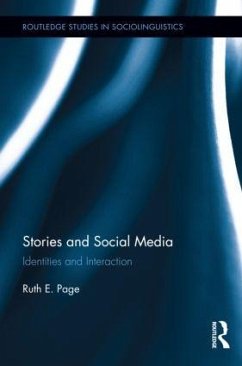
Social Identity and Discourses in Chinese Digital Communication
Versandkostenfrei!
Versandfertig in 1-2 Wochen
169,99 €
inkl. MwSt.
Weitere Ausgaben:

PAYBACK Punkte
85 °P sammeln!
Examining how diverse social identities are constructed in digital communication in China, this edited collection provides a multi-dimensional exploration of the diverse, discursive forms and practices used to construct and present the "self" online.













